The firecrest’s simple song is delivered among the boughs, well above head height.
It’s a high-pitched peeping, that accelerates and rises very slightly in pitch over the course of around three seconds.
Hardly a melody to rival the blackbirds and blackcaps of this world, its magic lies in the offer of a glimpse of the bird itself.
Firecrests vie for the title of smallest bird in Europe with their cousin, the goldcrest, though on average they are slightly bigger.
Whereas goldcrests have no eyestripe (and an endearingly nonplussed expression), firecrests look sharp - black through the eye, whiteish above and below it, and with a fiery, black-bordered streak on the crown.
Like goldcrests, adult females and males can be told apart by that crown - an even golden yellow in the female, yellow with an orange centre in the male.
This isn’t always easy to see in the field, not least because firecrests don’t keep still more than a nanosecond.
Firecrests like to fidget and flit their way through tangled places.
For a moment they may appear right in front of you - peeking out from the edge of a thicket or hovering under a leaf to pick off a bug.
Then they’re gone.
Once again, tracking them by ear is often the best way to steal a second look.
Since they first nested in the New Forest in 1962, firecrests have gradually spread.
Although still uncommon in the UK, and mainly limited to the south and east of England for now, they appear to be establishing themselves as a breeding species in more and more places. Their habitat requirements are not demanding.
Mature woodland with a mix of evergreen and deciduous cover is good. Ivy clad trees are a favourite. The scrappy corner of a park or a large wooded garden will do.
Everyday firecrest
Outside the breeding season, tuning into the firecrest’s subtle everyday noises also greatly increases the chance of seeing one.
Firecrest contact calls are generally made up of unremarkable peeping notes, given one at a time or in a rapid bunch.
At first listen, these sounds are all rather Acme Small Bird - high-pitched twitterings that could easily be another pipsqueak such as a goldcrest or a blue tit.
But every once in a while they give themselves away, with a series of three or four notes that inflect upwards.
In this (quiet) recording you can hear mainly one-note calls given quickly, and sounding rather anonymous - until towards the end you hear two phrases which make the characteristic ascent.
While undeniably subtle, it’s distinctive. Plenty of species deploy descending phrases, especially in song - think chaffinch, treecreeper and willow warbler. Not many head in the other direction.
And in the autumn and winter firecrests can be found almost anywhere within their range. Tuned to that sound, you might just happen upon one on a clifftop, in a graveyard, or while you’re putting the rubbish out the back door.
Personally I find that extremely motivating in everyday life.
Also testing the limits of your hearing: Goldcrest
This is the 23rd instalment in 2025’s cycle of Shriek of the Week. You can catch up with Robin - which includes details of how this works - as well as Wren, Song Thrush, Blackbird, Great Tit, Dunnock, Chaffinch, Goldcrest, Nuthatch, Chiffchaff, Skylark, Great Spotted Woodpecker, Blackcap, Starling, Willow Warbler, Nightingale, Whitethroat, Swift, Redstart, Greenfinch, Turtle Dove and Spotted Flycatcher.
For those who can, subscribing to the paid tier of Shriek of the Week supports me to write more and keep this all going.
It also gets you access to the full A-Z archive of Shriek of the Week AND our livestream-hopping Early Bird Club call - the next is 8am BST (GMT +1) on Saturday 5 July.
Thank you Nettie, Jenny and Deborah for your recent support. 🐦⬛
Now booking
Summer Birdsong Academy Walkshop
Stanmer Park, Brighton, Saturday 29 June
Join me to listen for firecrests, corn buntings, whitethroats and other summer singers later this month. We’ll take a gentle walk in the parkland and onto the downland edge, probably coming across woodpeckers, ravens and grey wagtails as we go, before a Q&A and optional refreshments at the beautiful One Garden.
Small group size, limited tickets.
We never know quite what we’ll add to the list - two weeks ago we found an Osprey. 👀
Credits:
Firecrest song recording by Henk Krajenbrink, used with kind permission. Accessible at www.xeno-canto.org/246145.
Firecrest contact call recording by Charlie Peverett (Birdsong Academy)
Firecrest image by Kiril Gruev from Pexel
Goldcrest image by TheOtherKev on Pixabay


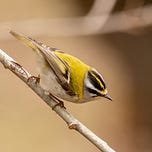


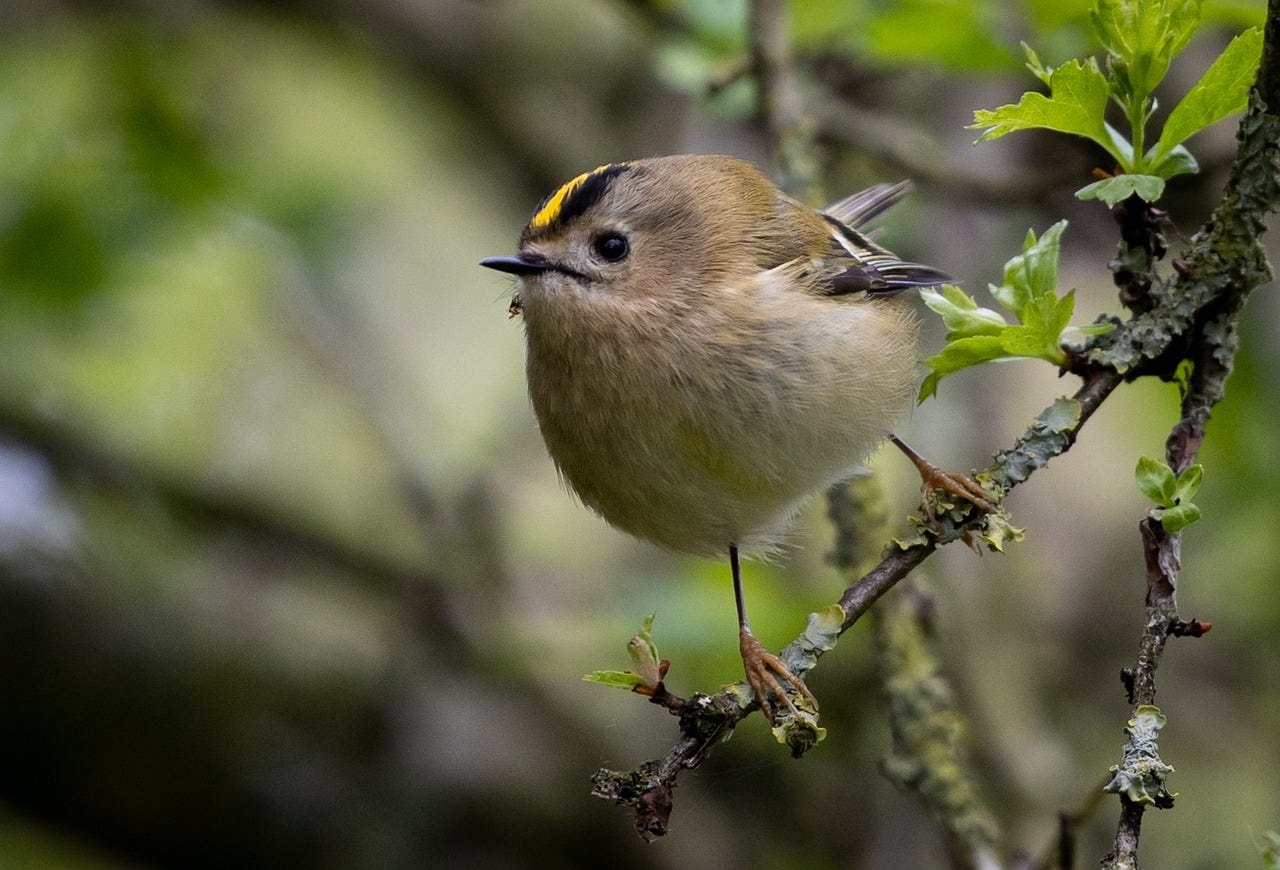


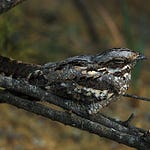
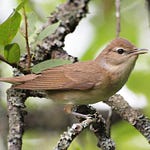
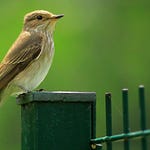


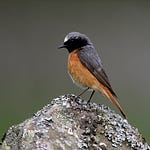
Share this post